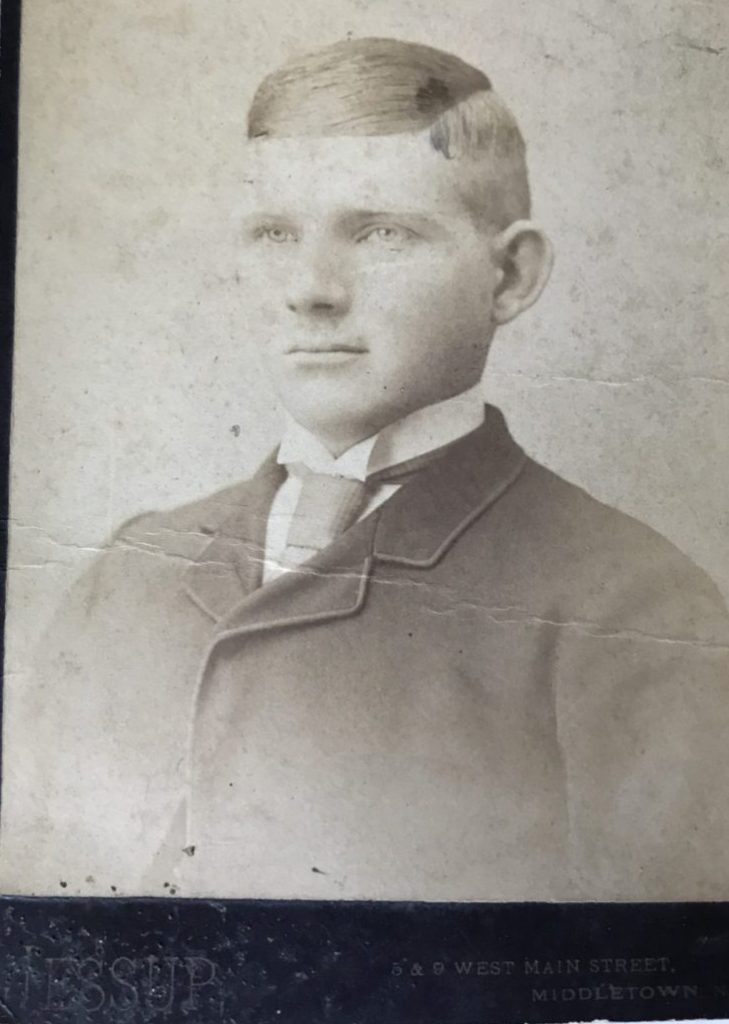The 19th century was a time when millions upon millions of adults said “goodbye” to their friends and family. The potato famine led 1.5 million Irish citizens to leave their homeland between 1845-1855. Economic and political trouble pushed 1.3 million Germans to depart from Prussia and the German states. 20 million immigrants, 20 million immigrants, from Central, Eastern and Southern Europe said farewell to their loved ones in order to make a new life in the United States between 1880-1920.
What kind of courage these people had, I can’t imagine. Even if I were hopeful, even if I were optimistic that I would find a better life, I don’t know if I’d have been brave enough to get on that boat. If I went with my family or could make a connection once there, then maybe. If I were a young single man, alone, I could only have prayed for the adrenaline of self-preservation and for God, incessantly.
Which leads me back to my Orange County Presbyterian kin. Lucky guys! Their ship had already sailed (!) and there they were, successful farmers living their best Victorian lives. Who’d want to say ‘goodbye’ to all that? Eleanor’s Aunt Frances and husband, Selah Seely Jessup, that’s who. At the same time as Europeans flooded through the “golden door” of New York, New Yorkers like these packed up and headed further West.

“Go West, Young Man, and Grow Up with the Country”
One year before Horace Greeley gave out this famous advice, in 1853, Selah Jessup’s older brother William, moved to Kendall County, Illinois with Goshen native, Mary Jane Van Duzer. At the time, “the prairies were rapidly filling up with permanent settlers” and the couple started their life together “in a comfortable frame cottage built before the roads were surveyed.” Selah followed with his bride some time between 1860 and 1870.
They were not the first settlers in Kendall County. That is to say, they were not the first white settlers in Kendall County. (The Potawatomi, Ottawa and Chippewa tribes had been forced off the land following the Indian Removal Act of 1830 and the Treaty of Chicago in 1833). Na-Au-Say township had, in fact, been settled up earlier, and in large part, by Orange County people:
One of the most influential groups of people which helped settle Kendall county in its pioneer period, between 1830 and 1860, came from Orange county, New York…Whole families of several brothers and sisters at a time they came, the first ones either via the Ohio, Mississippi, or Illinois rivers, or around the lakes from Buffalo, while later ones came by the first New York to Chicago railways with their frequent change of cars. So numerous were they and so influential in public affairs that it was seriously proposed in the state legislature to name the new county Orange in honor of the old home from which these people came.
site link
Again, what courage these people had, I can’t imagine. Traveling by river to start a life on an unknown prairie? I’m reading Little House in the Big Woods with my daughter, and let me tell you, this is frightening stuff. Gathering water, making your own bullets to hunt your own dinner, rushing to preserve food ahead of the winter: they are so vulnerable! (Today Ma would post “I feel exhausted” on Facebook and we’d be like, “it’s so good that you made yourself vulnerable.”)
That is to say, even successful farmers lived hard lives at that time. If people said “God be with you” to each other, if people gathered together at church every Sunday I think it must have been – in part – because death was so near, every day. It may come as no surprise that one of the Jessup brothers (Reverend Theodore) ended up becoming a long-standing pastor at the Na-Au-Say church.
I am no pastor but I know something of the immigrant experience. In 2007, my then-fiancé left Argentina to make a life with me in New York. With planes, phones, Skype and social media, his ‘goodbye’ was more of an ‘hasta luego’ than a farewell forever. Yet he endured that same pain of separation, from home, language, culture and lifelong friends. He made a sacrifice, like millions of immigrants before him, because he believed in peanut butter us.
Selah’s story ends happily. His daughter Eliza went on to have three beautiful children (the McCauleys). Here they are enjoying a tricycle after their father Rod moved the family further west in 1902:

Had Aunt Frances not kept in touch, sending this photo as a postcard to relatives in New York, this blog post would not exist. In other words, make that visit and send that card! You never know how many years later someone will be glad that you did.
For sure, we’ll put a call in to my husband’s sister tonight….and before we hang up, I’ll say “adios”. God be with you.

I didn’t know we had ancestors who went west. Interesting and well researched post, Martha. I like how you personalized it.
Thank you! Yes, it was a surprise to me too. I’m pretty sure we still have some cousins there (always more research to be done!)